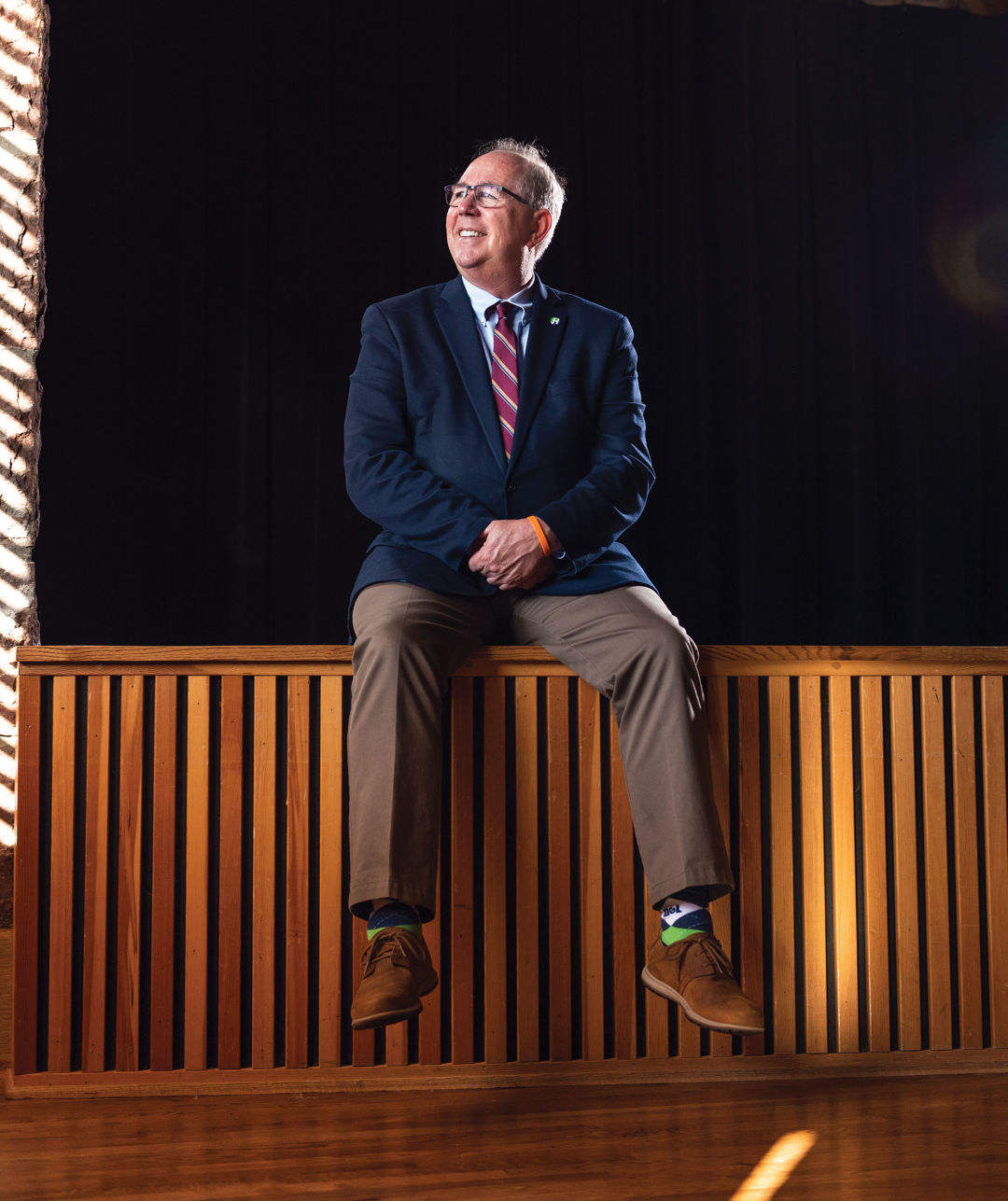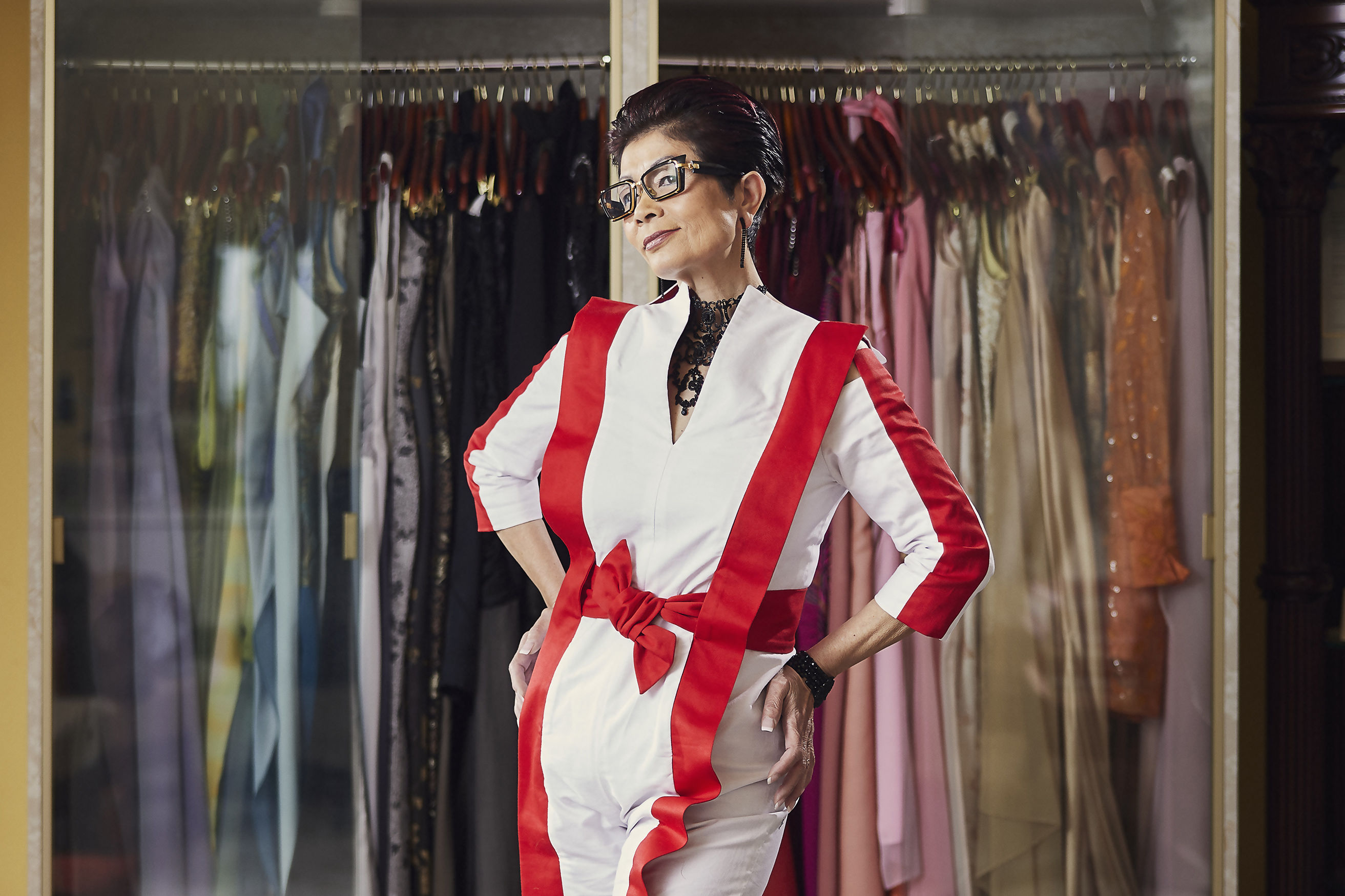Hillsboro’s Steve Callaway on His Growing City

Image: Thomas Teal
From his fifth-floor office in downtown Hillsboro, Steve Callaway can see the growing city’s past and future. There are the two mighty sequoias planted in the 1800s in front of the county courthouse, and the MAX tracks brought to town by the efforts of one of his predecessors, Shirley Huffman (who Callaway says “wouldn’t take no for an answer” when initial plans had the Blue Line end at 185th Avenue). There’s also an outpost of the migrant-worker-focused Virginia Garcia Memorial Health Center, several restaurants that have named a vegan dish in his honor (Callaway and his wife have been vegan for nearly a decade), an elementary school set to be wired with the city’s municipal broadband fiber network, and what he calls “our intermodal transportation facility.” (“Well,” he explains with a whisper, “the parking garage.”) Elected to Hillsboro’s city council in 2010 and mayor since 2017, the minister’s son and former school principal found himself in the news in September 2018 after he confronted a fellow baseball fan who called his city Hillsburrito.
We were down in Eugene for a Hillsboro Hops playoff game. We were out on the concourse and the guy said [something about] “Hillsburrito.” I’ve heard it off and on in 20-plus years. It’s totally different when you’re just a private citizen, but I’m like, “No, now you’re talking about my city.” You know, I am my brother’s keeper—not in a gender-specific manner—so I go, “What did you mean by that?” There’s a lot of Latinos in Hillsboro, there’s a lot of a whole lot of ethnicities. I’ve always been careful to give this man credit for not being defensive. He was open to my response.
The next day, we had a Hops game up here, and there was a gentleman who came up to me. He was Latino, and he just said, “Thank you. I’ve lived in Hillsboro all my life and I’ve hated that. For my mayor to have my back....” There’s somebody else who said, “I’ve lived in Hillsboro and I’ve used that, but I never really thought of it in a racist way until I read [an article about the incident].” To be able to spark some conversations and to have people reflect, that was so important to me.
As a city of 100,000 now, we have bigger city issues. As we have more population, but the same amount of room in downtown, proportionally you tend to see things that you wouldn’t have seen 20 years ago. We’ve added an officer whose sole job is to engage with, and support, and work with those who are experiencing homelessness on a personal basis, so you know who to look for. An example of how important this is: when there was the Eagle Creek Fire in the Gorge a couple of years ago, there were sheriff’s deputies who knew where families were living, kind of out in the woods, and were able to go out and make sure they weren’t caught off guard [by the fire].
I think that the mayor of Portland is, choose your adjective, the most difficult, the most challenging political job in the state. Portland is still a small enough city that you can see your mayor. A city like LA, San Francisco, New York, not so much, but Portland is still just a great size, and so there’s access, and there’s very little buffer or filter. Mayor Wheeler is part of our Metropolitan Mayors Consortium, the 25 mayors from the three counties. We get together monthly. We don’t all share the same political philosophy, necessarily—well, we don’t—but we all care deeply about helping our cities do well, helping our residents do well, and obviously helping the region succeed and function well.
One of our staff members here, she got a text yesterday while we were in a meeting, and you could just tell something changed in her body language. She said, “My partner is taking MAX into work, and somebody [just] told him to go back to India where he belongs.” OK, this is yesterday. Really? Is that where we are?
I know these aren’t brand-new thoughts, but there is a boldness to people. We need to be as bold, as brave, in responding to some of this. There’s no greater example than those guys who stepped in on MAX [to defend two young women of color, one wearing a hijab, from a white nationalist who was harassing them—two of the men who intervened were killed by the knife-wielding attacker in the 2017 incident, and another was critically injured]. You never know how that other person is going to respond, to individuals who are very different, maybe where they live or their backgrounds or their approach to life or their philosophies or beliefs or political perspectives, and yet, man, they stepped in, and you talk about being brave and bold. That’s certainly not a Portland issue; unfortunately, that’s a national issue. But where do we live? We live here, and that’s where we can make a difference.




